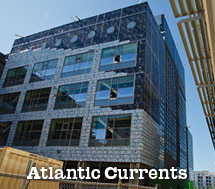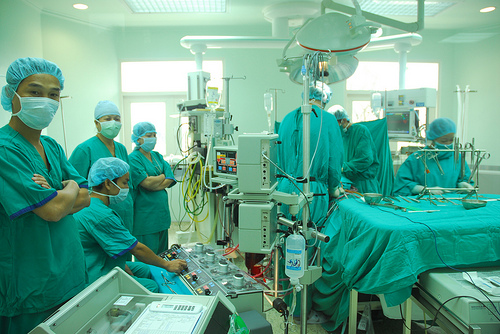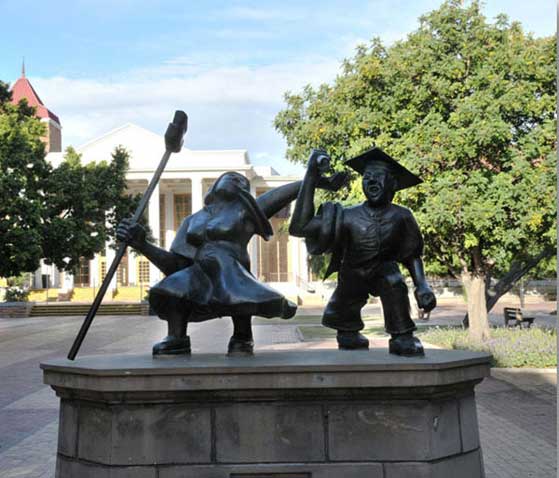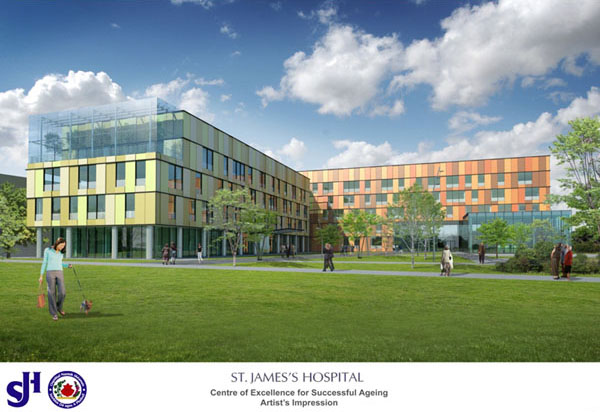Brick-by-Brick – Investing in Capital Projects for Social Change
Resource type: News
Gara LaMarche |
 The business of making social change often has to start from the ground up. Sometimes literally! Since its inception, The Atlantic Philanthropies has invested over $1.5 billion in a number of capital projects to build the infrastructure that enables health to be advanced, children and older people to achieve their full potential, and human rights leaders to gather and work more closely together.
The business of making social change often has to start from the ground up. Sometimes literally! Since its inception, The Atlantic Philanthropies has invested over $1.5 billion in a number of capital projects to build the infrastructure that enables health to be advanced, children and older people to achieve their full potential, and human rights leaders to gather and work more closely together.
Atlantic’s founder, Chuck Feeney, has over and over again proven the difference that bricks and mortar projects can make. From Cornell University and the University of California San Francisco (UCSF) at Mission Bay in the United States to the Programme for Research in Third-Level Institutions (PRTLI) in the Republic of Ireland, and research institutes in Australia, South Africa and Viet Nam, Atlantic has seen support for infrastructure as a critical element in improving the lives of disadvantaged and vulnerable people.
Any major infrastructure development is always about more than the building. It also requires investment in the capacity of the people who will work in it, and close attention to the kind of sustainability that only comes with engaging the government and other stakeholders to believe in and support the effort.
In Viet Nam, our Population Health Programme has developed health infrastructure, like hospitals and clinics, and then strengthened the capacity within those institutions to deliver the best care. The Cardiovascular Centre at Hue Central Hospital is located in central Viet Nam, a particularly poor section of the country, and serves more than 20 million people. In 2003, the hospital was not equipped to perform heart surgery, and anyone requiring it would have to travel great distances to Ha Noi or Ho Chi Minh City. Beginning that year, Atlantic provided support – totalling $12 million – to construct a cardiovascular centre, equip it and train the personnel. The Cardiovascular Centre is now operating at full capacity. It has served more than 57,000 outpatients and over 24,000 inpatients, and performed more than 6,000 open heart surgeries. Perhaps most remarkably, the centre was approved to perform the first heart transplant in Viet Nam, over the other large hospitals in major cities like Ha Noi. Recently, the Ministry of Health recognised Hue Central Hospital as one of the top three hospitals in the country.

Cardiovascular Centre at Hue Central Hospital
In South Africa, the establishment of a Life Sciences complex and a School of Public Health building at the University of the Western Cape (UWC) has had a transformative effect on the university, its students, and its capacity for scientific research in the region. The construction of these buildings is also in line with Atlantic’s social justice framework in that they provide top-of-the-line academic and research facilities at a university serving primarily students from disadvantaged backgrounds. The way bricks and mortar construction can bring about social change is perhaps best illustrated by the sculpture at the foot of the University’s administration building of a domestic worker celebrating the graduation of her son.

A sculpture at the University of Western Cape of a domestic worker celebrating the graduation of her son
Another example of a capital investment that went beyond mere construction is the Centre of Excellence for Successful Ageing at St. James’s Hospital in Ireland. The concept of a centre within the hospital to serve the older population in Dublin had been around for more than 20 years, but had not obtained sufficient government support. Atlantic offered a matching grant of €2.7 million over five years in 2004 which enabled the hospital to obtain a long-sought commitment from the Department of Health and Children, quickly attract a renowned leader and begin conducting internationally recognised work. Atlantic provided €11.8 million over four years of additional funding in 2007 to consolidate the centre, which had been housed in old and inadequate buildings, into one place and establish a National Centre of Excellence for Successful Ageing at St. James’s Hospital. Despite difficult economic times, the Health Service Executive in Ireland this year committed to put €31.7 million over three years toward the establishment of this new facility. The new building will house the full range of treatment, diagnostic, medical, social and general service departments and will include ambulatory care clinics, acute assessment wards, rehabilitation, a day hospital, and dementia, stroke and continuing care units as well as education, training and research. With the ongoing support of the government, the Centre will provide world-class care to disadvantaged older adults in the Republic of Ireland.
One concern any funder has when making an investment is sustainability. How can an organisation sustain itself to continue pushing for change and upholding the changes it achieves? In a handful of cases, Atlantic has helped its grantees reduce their operating costs, eliminate redundancies and become more sustainable over time by supporting a shared workspace. For example, Atlantic provides core support to Bermuda grantee, The Family Centre, which supports its tenancy in Charities House, a collective workspace shared by other charities on the island. By sharing a facility with other nonprofits on the island, each organization can reduce its overall operational costs and apply more of its budget to its work. And just last week at its final Board meeting of 2010, the Atlantic Board approved a grant to Amnesty International Ireland to redevelop its existing building into a human rights action centre that will provide conference facilities, meeting rooms, training facilities and public exhibition spaces for the entire human rights sector in Ireland. These investments in cross-sector workspaces not only strengthen the organisations operating within them, but also the entire sector by fostering collaboration among organisations.
At Atlantic, in addition to our other strategies for making a lasting difference in the lives of vulnerable and disadvantaged people, we invest in capital projects like hospitals in Viet Nam, infrastructural improvements to strengthen world class services for older adults in Ireland, transnational research institutes to facilitate collaboration and scientific advancement, and innovative shared space initiatives for grantee organisations because we believe that, in concert with capacity building and advocacy support, our grantees will be better equipped to achieve the results they are seeking.
To paraphrase Kevin Costner in the film “Field of Dreams:” If you build it, change will come.
Best wishes for happy holidays and a happy new year from all of us at Atlantic.
More Information:
>Slideshow: Investing in Capital Projects for Social Change
>Video: Breaking Ground on UCSF Medical Center at Mission Bay
